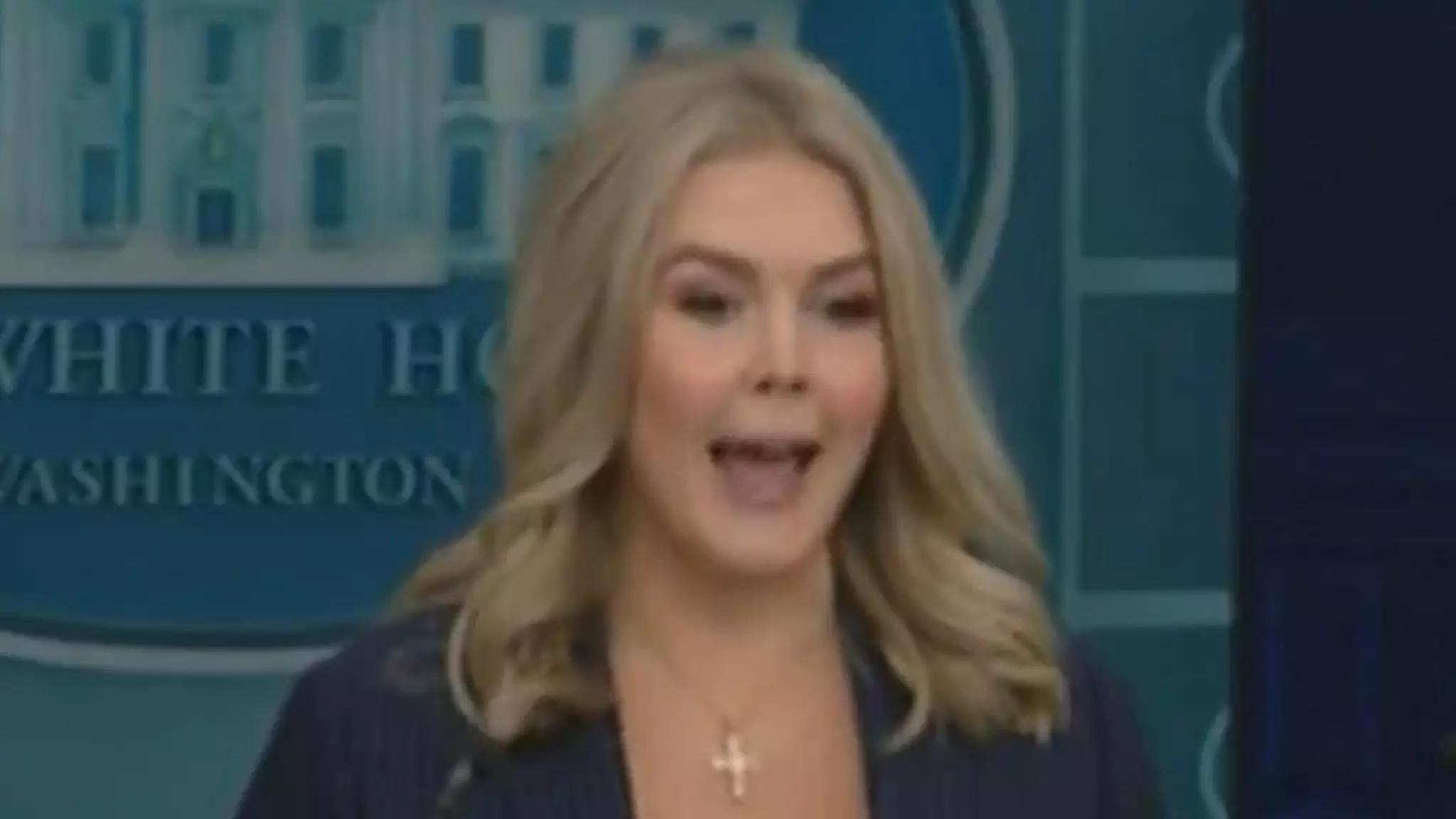The recent actions and statements from President Trump’s administration signal a surprising standoff with the media. His press secretary, Karoline Leavitt, has taken a bold and confrontational stance, asserting that the administration will hold media outlets accountable for what they perceive as misinformation. At the heart of this conflict is the designation of the Gulf of Mexico, which the President has deemed to be the “Gulf of America” through an executive order. This is not merely a semantic disagreement; it poses significant implications for the relationship between the executive branch and the press.
Leavitt’s remarks emphasize an environment where the Trump administration will impose strict loyalty to its narrative. When confronted with questions about the Associated Press’s refusal to adopt the new nomenclature, she expressed frustration and warned of potential repercussions. This combative approach raises concerns about the implications for press freedom and journalistic integrity. Journalists are tasked with presenting information based on facts and conventional terminology, not by aligning with the whims of political figures.
First Amendment Considerations
Amidst this bravado lies a more serious issue: freedoms guaranteed by the First Amendment. The administration’s threat towards reporters who do not comply with its preferred language can be interpreted as an intimidation tactic. CNN’s Kaitlan Collins posed a crucial question regarding potential retaliation against reporters who disregard the administration’s directives. The response suggested an alarming willingness to act against media professionals who dare to question or disobey. This type of heavy-handed approach contradicts Trump’s oft-repeated claims of advocating for freedom of speech.
Moreover, the use of executive orders to influence public discourse sends a troubling message about the power dynamics at play. When media organizations are faced with the risk of losing access based on editorial decisions, it raises ethical questions about the role of the press in a democracy. The very essence of journalism lies in its independence from government influence; this tension between authority and media may redefine the landscape of American journalism in the current political climate.
A Broader Context of Control
This latest confrontation is not an isolated incident. The Trump administration has long exhibited a pattern of challenging media narratives that do not align with its agenda. From labeling outlets as “fake news” to restricting access to information, there has been a consistent effort to undermine the credibility of the press. This new episode—with a focus on seemingly trivial terminology—highlights a larger strategy aimed at controlling the narrative.
Furthermore, the divergence in responses from various media outlets, as shown through the Associated Press’s defense of its reporting and choices, illustrates the complexity of the current media landscape. It is critical for the press to navigate these turbulent waters with integrity while continuing to serve the public interest.
While the dispute over the name of a body of water may appear trivial on the surface, it epitomizes a critical confrontation between the media and the state, revealing deeper issues concerning freedom of the press and the essential role it plays in holding power accountable. The stakes are far higher than just terminological accuracy; they encapsulate the essence of democratic principles and the vital function of a free press in society.

